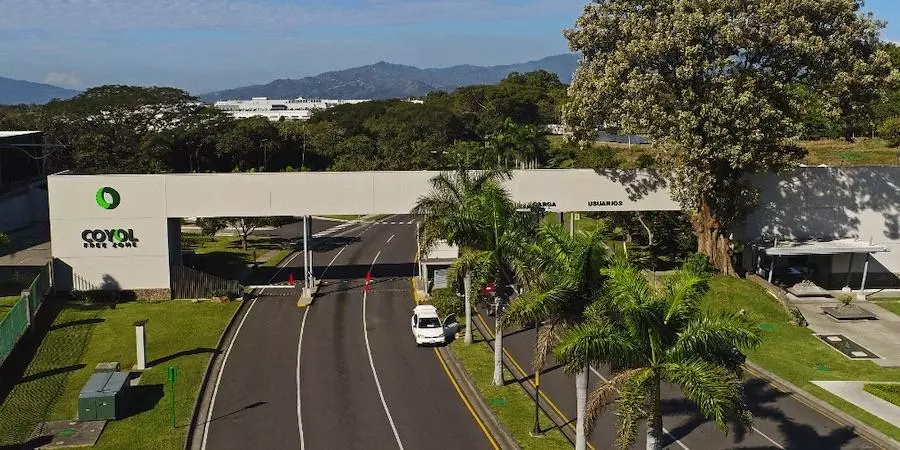The Free Trade Zone Regime (FTZ) in Costa Rica is the main incentive regime for attracting foreign direct investment and has been a success story since its inception and through successive modifications, adopted to respond more adequately to the reality of the international environment.
Since the beginning of the FTZ in the 1980s, the legislation established a series of exemptions to several taxes to encourage exports of non-traditional goods to so called third markets. The taxes exempted by the current Law 7210 (hereinafter the Law) include income tax, real estate tax (formerly known as land tax), and municipal taxes and patents. These three tax exemptions are of a temporary nature (Article 20 (d), (g) and (h)).
In principle, then, the beneficiary companies enjoy a total income tax exemption for the first 8 years; in the following 4 years, the exemption is 50%, and as of year 13, they start paying the full income tax. In the case of real estate tax and municipal taxes and patents, the exemption is for a term of ten years.
The Law also establishes several categories of beneficiary companies, including manufacturing or processing companies, trading companies and service companies (articles 17, a), b) and c)). In 1998, the legislation was amended by Law 7830, in order to allow that the benefits of the regime, including the exemption from income tax, real estate tax and municipal taxes, could be extended beyond the term granted in the initial regime, through the granting of a new regime, in the case of a new project or when "the nature or magnitude of the additional investments justify it", all at the discretion of the Executive Branch. This extension is granted based on Article 20 bis of the Law.
On the other hand, according to WTO rules agreed during the Uruguay Round, tax exemptions (whether income, real estate or municipal) on account of export is a prohibited subsidy and, therefore, based on Article 27 of the Agreement on Subsidies and Countervailing Measures and the extensions granted, its granting to manufacturing companies had to cease, in the case of developing countries, as of January 1, 2016. To comply with this obligation, in 2010 the national legislation was again modified, now through Law 8794, and it was established that as of December 31, 2015, export manufacturing companies that started operations under the FTZ after that date could not enjoy the benefit of the tax exemption. Note that express reference is made to "export manufacturing companies", i.e., those under subsection a) of Article 17 of the Law. According to the same reform, however, the companies that were already established would continue to enjoy the exemption until the expiration of the term set forth in their respective executive agreements.
Also, and very importantly, to allow the country to continue attracting investments without violating the provisions of the WTO agreements, the 2010 reform then created a new category of free zone companies. These companies, known in export jargon as "item f)" companies (because they were created through item f) of Article 17 of the Law) are those that produce goods in strategic sectors previously defined by the government (health sciences sector, for example) or in a relatively less developed area (outside the GAM). In both cases it is not necessary that, in order to receive the benefit, what they produce must be for export. In addition to falling into one of these two categories (strategic sector or less developed zone), the company must meet other additional requirements, including: a) it must be a new investment that can be easily relocated (from one country to another) and b) it must not have been paying taxes in the country before (i.e. it cannot be a taxpaying company that decides to switch to the FTZ).
Finally, companies providing export services, which operate under the free zone regime, enjoy and will continue to enjoy, even as of 2016, the benefits of the exemption also in temporary terms. Additionally, in accordance with another reform introduced in 2019, through Law No. 9689, these exemptions and benefits are not subject in fact or in law to export results or sales restrictions in the local market, although, in the latter case, all the corresponding consumption taxes will be applicable to them, as well as the customs procedures of any similar import from abroad. The beneficiary company´s however should fall under one of the sectors selected by the government as priority service sectors.
The success of the FTZ can be easily measured in the number of jobs it generates, the salary level and benefits offered to its workers, as well as the competitive clusters that have been created in sectors such as life sciences, digital technology, corporate services, etc., all of which means that, year after year, the positive effects far outweigh the fiscal sacrifice produced by the incentives granted. That notwithstanding, until now, most of this investment has still been concentrated in the Central Valley of the country and for this reason, important efforts have been made so that the benefits also spread to the rest of the national territory.
In this sense, a bill (No. 22,607) is currently being discussed that seeks to strengthen territorial competitiveness and thus promote the attraction of investments outside the Greater Metropolitan Area (GAM). This proposal seeks to expand the potential beneficiary sectors of the FTZ (inputs from the agricultural, livestock and fishing sectors; health service centers; adventure parks, etc.); promote productive linkages in these regions; authorize the parks to generate renewable electric energy for self-consumption and supply the service to the beneficiary companies of the regime; and promote the training of human talent, connectivity plans and the reduction of water and electricity rates, as well as some social charges. The law is still being discussed in Congress but appears to have general support from the different political forces.
Another challenge faced by the regime is an eventual evolution to adapt to the global minimum corporate tax (GMT), with a rate of 15%, proposed by developed countries with the intention of establishing a system under which a company from a specific country (i.e., the US) pays at least a certain percentage of its profits in taxes, regardless of where in the world those profits are earned (i.e., Costa Rica). The proposal still lacks many technical details that will need to be defined in the following months or even years. Until then, nobody can be sure how this GMT would actually affect the regime. However, it is expected that, eventually, Costa Rica would probably revise its current FTZ to offer innovative incentives and to remain competitive in attracting foreign direct investment into the country.
By Francisco Chacón

Related practice area:


